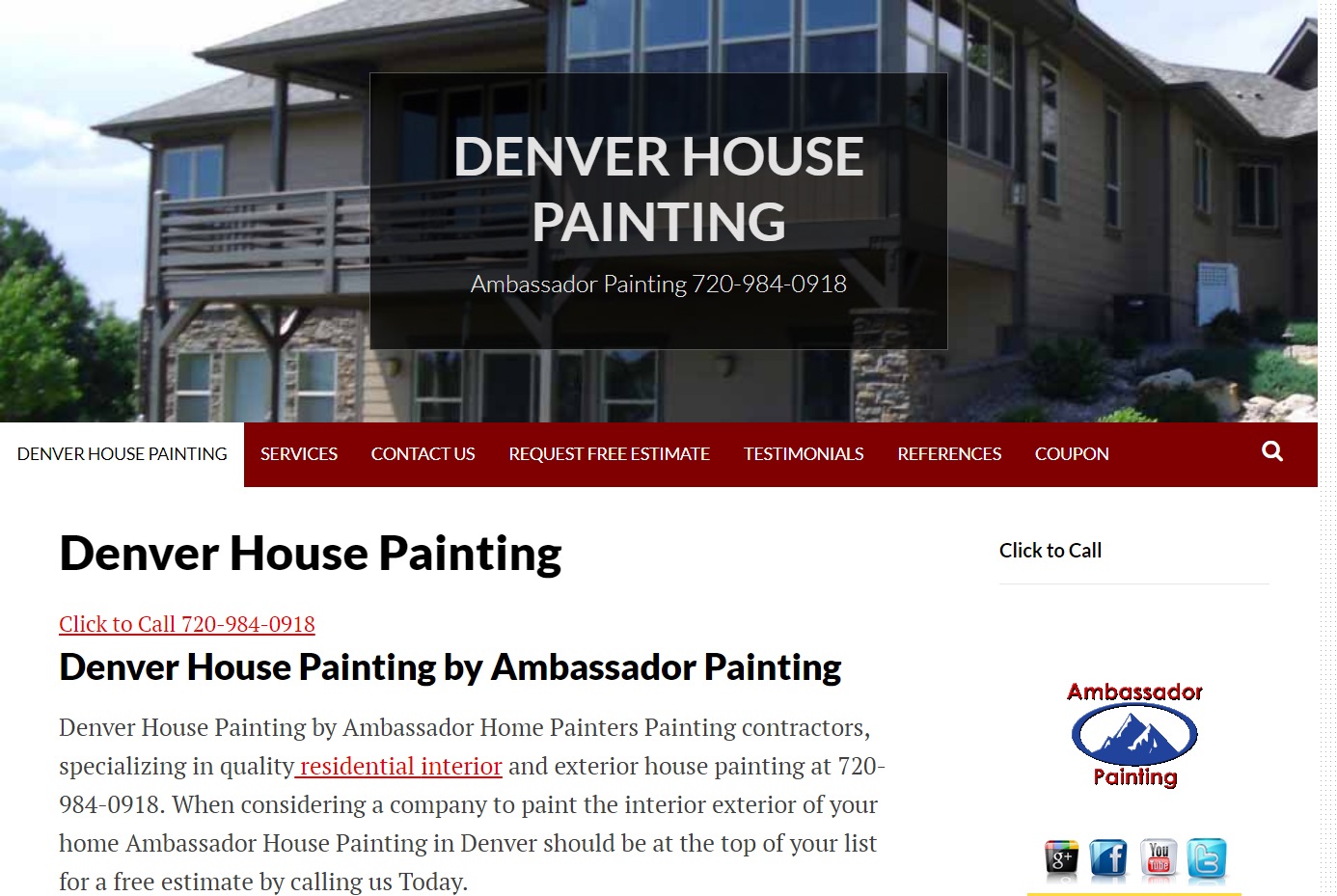I am in northern Nevada and you have not yet gotten sufficient responses to provide a painting cost chart showing the averages. I do have a quote from an outside (Not Homeadvisor referral) painter who is local for $2,750 for soffits, patio cover and posts, Garage facia (redwood clapboard above (~300 ? Sq. Ft.) on a 2046 Sq. Ft. home where the walls are 9 ft tall and it is fully stuccoed with plastic stucco surfaces, so not being painted.
We're so happy we went with these guys. We have an older 1940s house that needed a LOT of prep work. There were bad patch jobs, peeling water based paint over oil paint and old cracking oil paint. Suffice to say it needed some major TLC. I must have met with a dozen companies. Some quoted 8-12k (for a 1000 sq ft house), others could do it for a reasonable price but with no guarantee on the work and said it wouldn't look that great. Jose came to the house and had a clear plan on what to do to make it look the best and keep the price reasonable. Here's why we'd recommend them to anyone. - His foreman Rene was lead on the project and did an amazing job. Overall paint & prep guru with strong attention to detail. - They use the best paint (Dunn Edwards) and it's included in the price. - They have a long guarantee on their work. - They're friendly, trustworthy and flexible. For example, we went a little too bold in one room, and they helped up picking a new color and repainted it for a small fee. They did the job back in Jan and I'm consistently looking at the walls still admiring how good they look. My friends have had painting horror stories, and I'm thankful we went with these guys.
These days, it seems like anyone with a paintbrush and a business card can call themselves a painting contractor. Homeowners who are most likely to be taken in by these unscrupulous “painters” are those who are focused on cost and cost alone. With painting, like anything else in life, you typically get what you pay for. If the painting contractor you are considering cannot answer these ten questions, proceed at your own risk. If they answer all ten satisfactorily, then you know you’ve found a great great professional contractor to work with. http://youtube.com/watch?v=b6_WEt9k_Hw
Climate is another factor to consider. Sunlight, wind, rain and salty weather can all wear out exterior paint. Oil-based paint is durable against wind, rain and temperature changes, but sunlight tends to degrade it. Alkyd paint chalks and sheds very thin layers when it begins to wear. Latex paint is the more durable option for very sun-drenched and relatively dry climate areas. Latex paint with high vinyl content should be avoided, however. Acrylic resin is by far the more durable binder for outdoor latex paint.
Back to the article. You can add water to all latex based paints / thinner to oil based paint. The tinting base has absolutely nothing to do with it. Say you are working outside and throughout the day you have to add a little water to keep the same consistency. If somebody really tried to add 20% to 50% water they no longer would be painting they'd be performing a whitewash or pickle finish.
You are right on with this - why do people leave switch plates on when it's just so easy to take them off? Another thing that happened to us - we had the popcorn ceiling taken off and the ceiling painted white. When the job was done and I later went to change out all the fixtures/fans, they had left every fixture in place, so there was a large patch of popcorn and unpainted ceiling left behind - it just didn't dawn on me to specify that they take those down before scraping and painting. It was kind of a mess. https://youtube.com/watch?v=b6_WEt9k_Hw
I turn away any job when the client refuses to pay anything up front. It sends a red flag. I also charge a scheduling fee which is non-refundable. I get 33 percent when I show up and begin work. Another percentage halfway through, and the balance upon completion after client is satisfied. There needs to be skin in the game for both parties as a measure of good faith. If you are dealing with a reputable company (did your due diligence, right?) why wouldn't you want to pay something as work progresses? We do this not only because we love to paint but we require cash flow to stay in business. There is not always 'money in the bank' as you suggest. It's tough these days. The suggestion buy 'Kim' 'Never pay a contractor a deposit' is nonsensical. http://youtube.com/e/b6_WEt9k_Hw
If you paint over dirty, oily surfaces, the paint will easily chip or peel off. So before painting, clean grimy areas with a deglosser or heavy-duty cleaner intended for prepaint cleaning. They work well to clean painted, varnished or enameled surfaces to improve the adhesion of the new paint. They’re ideal for cleaning greasy or oily areas like kitchen and bathroom walls and removing hand marks around light switches and doorknobs.

